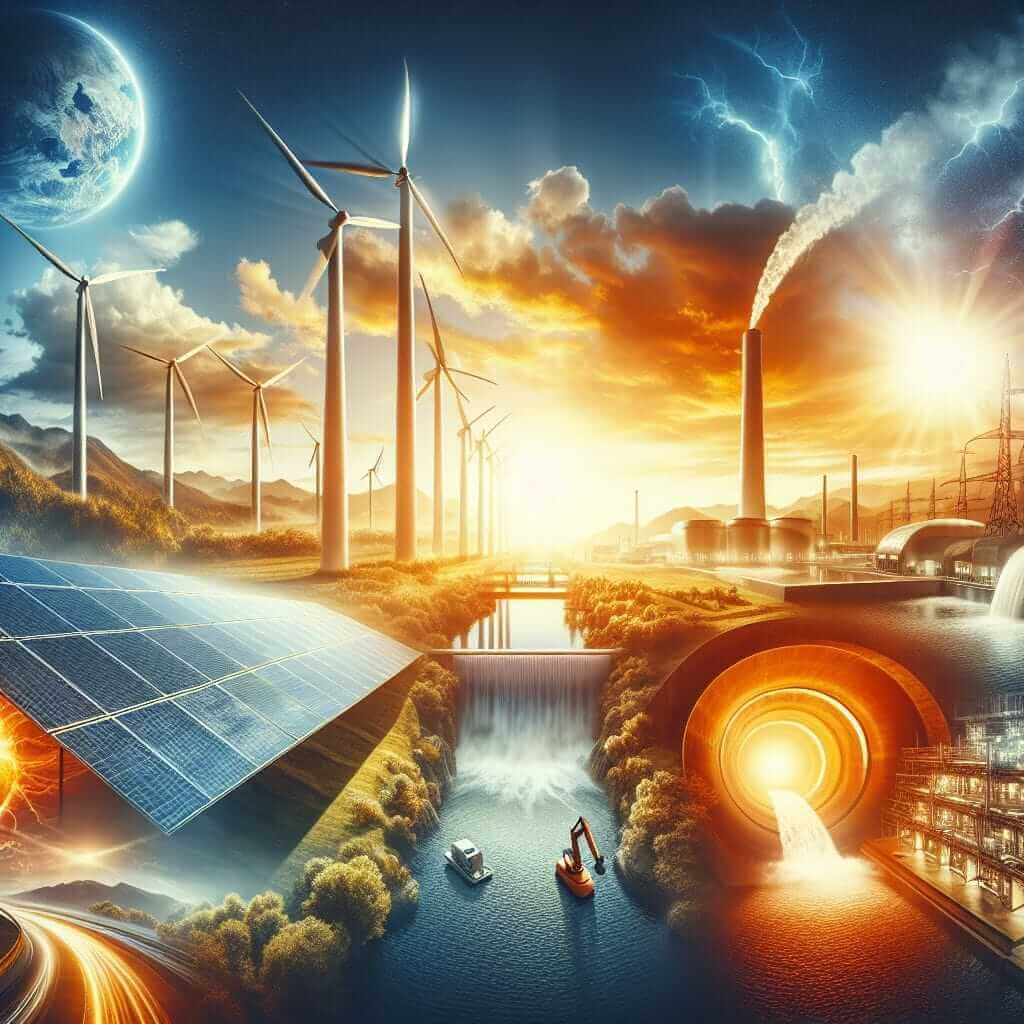The relationship between renewable energy and national security is a topic of increasing relevance in today’s world. As climate change accelerates and geopolitical dynamics shift, understanding this complex interplay is crucial, even within the context of language proficiency exams like the IELTS. This article explores how the topic might appear in the IELTS Writing Task 2 and provides a sample answer, vocabulary analysis, and further tips for test-takers.
While “The influence of renewable energy on national security” itself might not be a common phrase used verbatim in IELTS exams, the core concepts are frequently intertwined in various question formats. Here are a few potential ways this theme could be assessed:
-
Direct Relationship:
“Some people believe that shifting to renewable energy sources significantly strengthens a country’s national security. To what extent do you agree or disagree?” -
Economic Impact:
“Investing in renewable energy is often seen as a way to boost economic growth, but some argue that it could harm national security by making countries dependent on unreliable energy sources. Discuss both views and give your opinion.” -
Environmental Concerns vs. Security:
“To what extent should governments prioritize environmental protection over national security when making decisions about energy production and consumption?”
These examples highlight the recurring themes of energy independence, economic stability, and environmental sustainability, all of which are closely linked to national security. The IELTS exam often requires test-takers to analyze such multifaceted issues, making this a pertinent topic for preparation. Based on the analysis of recent IELTS essay questions, the “economic impact” theme appears with a higher frequency, suggesting it’s a crucial area for test-takers to focus on.
Sample Essay Question
“Investing in renewable energy is often seen as a way to boost economic growth, but some argue that it could harm national security by making countries dependent on unreliable energy sources. Discuss both views and give your opinion.”
Analysis of the Question
This question presents a classic “discuss both views” structure, requiring a balanced analysis of two contrasting perspectives.
- View 1: Renewable energy boosts economic growth. You need to explore how investments in renewable energy can lead to job creation, new industries, and reduced reliance on expensive fossil fuel imports.
- View 2: Renewable energy harms national security. This perspective argues that dependence on renewables, with their intermittent nature (e.g., solar power dependent on sunlight), can make a nation vulnerable to energy shortages and geopolitical pressure.
After discussing both sides, you must provide a clear and well-reasoned opinion.
Sample Essay
Renewable energy has emerged as a focal point in global discussions about economic growth and national security. While its proponents highlight its potential to stimulate economies, some argue that it could jeopardize a nation’s security due to reliance on inconsistent energy sources. This essay will delve into both perspectives before presenting a nuanced viewpoint.
Advocates for renewable energy emphasize its capacity to fuel economic expansion. Investments in solar, wind, and hydro-electric power generation create jobs, fostering a skilled workforce in burgeoning industries. Furthermore, reducing dependence on fossil fuel imports, often subject to price volatility and geopolitical tensions, can stabilize national economies and strengthen energy independence. For instance, countries heavily reliant on oil imports can mitigate economic risks by diversifying their energy portfolio with domestically sourced renewables.
Conversely, critics contend that the intermittent nature of renewable energy sources poses a significant threat to national security. Unlike fossil fuels, which offer a relatively stable and controllable energy supply, renewables are subject to weather fluctuations. A nation overly reliant on solar power, for instance, may face energy deficits during prolonged periods of cloud cover. Such dependence could make a country susceptible to energy blackmail or sabotage, undermining its national security.
While the concerns about the intermittency of renewables are valid, they are increasingly being addressed through technological advancements like improved battery storage and smart grids. Moreover, the long-term economic and environmental benefits of transitioning to cleaner energy sources outweigh the potential risks. Diversifying energy sources, investing in smart grid technologies, and fostering international collaborations can ensure energy security while reaping the economic benefits of renewable energy.
Word Count: 280 words
Notes on Writing
- Structure: This essay follows the standard IELTS structure: Introduction, Body Paragraph 1 (View 1), Body Paragraph 2 (View 2), and Conclusion.
- Vocabulary: Aim for a range of vocabulary related to energy, economics, and security. Avoid repetition and use synonyms effectively.
- Grammar: Complex sentence structures and accurate grammar are crucial for a high band score. Pay attention to subject-verb agreement, tenses, and punctuation.
- Cohesion & Coherence: Use linking words and phrases to connect ideas smoothly and create a logical flow.
Vocabulary Focus
- Intermittent (adjective): /ˌɪn.t̬ɚˈmɪt.ənt/ Occurring at irregular intervals; not continuous or steady.
- Volatility (noun): /ˌvɑː.ləˈtɪl.ə.t̬i/ The quality of being likely to change suddenly, especially in price.
- Geopolitical (adjective): /ˌdʒiː.oʊ.pəˈlɪt̬.ɪ.kəl/ Relating to the influence of geographical factors on the politics and relations between countries.
- Diversify (verb): /dɪˈvɝː.sə.faɪ/ To increase the variety of something.
- Sabotage (noun/verb): /ˈsæb.ə.tɑːʒ/ The act of deliberately damaging or destroying property or equipment to hinder a nation’s war effort or other activity.
- Nuanced (adjective): /ˈnuː.ɑːnst/ Having or characterized by subtle and slight differences or distinctions.
- Burgeoning (adjective): /ˈbɝː.dʒən.ɪŋ/ Beginning to grow or increase rapidly; flourishing.
- Mitigate (verb): /ˈmɪt̬.ə.ɡeɪt/ Make (something bad) less severe, serious, or painful.
Conclusion
The intersection of renewable energy and national security presents a complex topic with arguments for and against increased reliance on renewable sources. In the IELTS exam, demonstrating your ability to analyze both sides of this issue, provide relevant examples, and express a clear opinion is essential for a high score. Remember to use a range of vocabulary, maintain grammatical accuracy, and structure your essay coherently to effectively convey your understanding of this globally significant issue. For further exploration of related themes, consider practicing essays on the impact of renewable energy on energy independence or the role of financial markets in economic stability.
